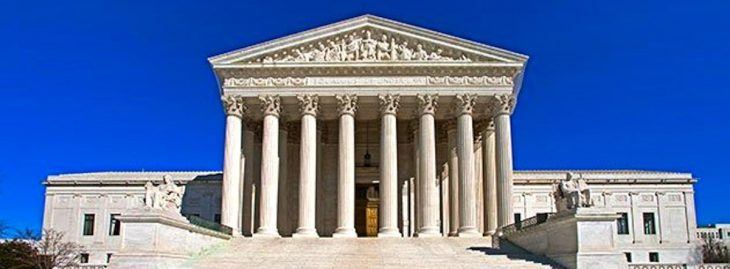U.S. Supreme Court review of Wisconsin gerrymandering case closely watched
by October 9, 2017 6:45 pm 419 views

The U.S. Supreme Court is deliberating a gerrymandering case out of Wisconsin and it could have an impact on Congressional redistricting nationwide. How it could impact Arkansas is unclear, according to the Arkansas Secretary of State’s Office.
At issue is the Wisconsin State Assembly’s redistricting map drawn in 2010 after Republicans swept into power inside the state’s legislature. It’s common practice for the party in power to draw favorable districts when the redistricting occurs. Courts have ruled for years that partisanship in drawing the maps for state legislative and congressional seats is the prerogative of the voters, and part of the political process.
But some legal scholars believe the practice has deteriorated to the point that voters constitutional rights are being violated, and the one-person, one-vote principal is under attack. Essentially, they argue, the lines could be a violation of the Constitution’s Equal Protection’s clause.
Justices have already heard arguments made in Gill v. Whitford last week. In 2010, Wisconsin Republican lawmakers used voting and computer models to determine the best ways to redraw districts that would insulate GOP candidates from defeat. During the 2012 election, Democrats cast more than 51% of votes in the state, and former Democratic President Barack Obama carried the state in the Electoral College. But Republicans took 60 of the 99 state legislative seats in the state, and in elections since that Republican majority has continued to grow.
While many of the 20 or so states that could be impacted as a result of the ruling are controlled by Republicans, some Democrat leaning states such as Maryland also could be impacted. If the court rules the gerrymandered Wisconsin election map violates the constitution, it could open the door for possible legal challenges to the way some congressional districts have been drawn, according to legal experts. There are dramatic examples in some states such as Maryland, Pennsylvania, Michigan, and others were districts’ geographic lines have been extremely distorted to give one party or the other an advantage.
At least 28 states allow their legislatures draw districts, and other states use independent commissions. In Arkansas, the lines are drawn by a Board of Apportionment made up of the governor, state attorney general, and the secretary of state. Gov. Mike Beebe and Arkansas Attorney General Dustin McDaniel, both Democrats, were on the board in 2011 when existing lines were drawn. The Arkansas General Assembly draws the congressional lines.
Arkansas Secretary of State spokesman Chris Powell told Talk Business & Politics the department’s legal team is monitoring the case before the Supreme Court. Redistricting will occur in 2021, and a new secretary of state will have been elected by then, he said.
“It remains to be seen what effect this case will have in Arkansas as the case has just recently been heard by the court … at this point, we could not speculate as to how the court will rule and what would or would not change about the process in Arkansas,” Powell said.
U.S. Sen. John McCain, R-Ariz., and U.S. Sen. Sheldon Whitehouse, D-R.I., implored the court to stop the gerrymandering. The senators released a joint statement hoping for decisive action by the country’s highest court.
“The American people do not like gerrymandering. It leaves them feeling powerless and discouraged; that their votes are wasted and voices silenced. They see it rigging our political system to favor special interests.
“We see the same from our vantage point. American democracy ought to reflect the will of the people. Elections ought to belong to the people. Increasingly uncompetitive and unrepresentative districts have a corrosive effect on the American democratic process. Partisan gerrymandering distorts statewide votes, dilutes the effect of votes based on political affiliation, and leads to the election of congressional and state legislative delegations that do not represent the will of the voters. Districts become safe because they are drawn to be politically uniform, and in such districts, an incumbent’s biggest threat is often a primary challenge from a more extreme member of his or her own party. This threat makes legislators reluctant to work across the aisle and support bipartisan legislation, and worsens the hyper-partisanship that paralyzes governance and weakens public trust in democratic institutions.
“The court can clean up a cause of America’s crisis in confidence in our democracy, protect our elections from wildly partisan ‘bulk’ gerrymandering, and return control of our elections to the people. We hope the court will.”
